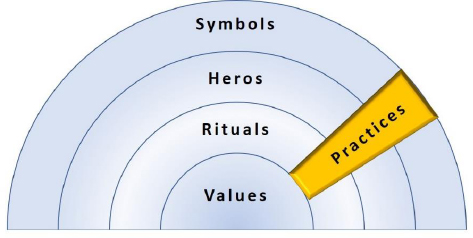Intercultural Management
“Culture is the collective programming of the human mind that distinguishes one group from another” – Prof. Geert Hofstede.
Intercultural Management helps to understand our own cultural profile and preferences, and the existing ones around us. Once you understand cultural differences, it becomes easier to accept them thus, being better equipped to anticipate, overcome intercultural issues and develop a win-win situation for all stakeholders.
As per the definition of Prof. Geert Hofstede, culture is a group phenomenon; it is learned and affects the way we think and act. Just like an onion, culture has layers, which when accurately identified, understood, and planned for can become significant enablers.

“Different minds but common problems”
Our tools, workshops and methodologies are based on the initial work of Prof. Geert Hofstede and his 6 dimensions or dilemmas that all individuals within various societies have to deal with:
- The Power distance – Relation to authority
- The Individualism vs Collectivism – Relationship between individual and society
- The Decisiveness vs. Consensus – Motivation towards Achievement and Success
- The Uncertainty Avoidance – Measuring the (in)tolerance of ambiguity in society
- The long-term vs short-term orientation perspectives
- The Indulgence vs. Restraint – the nature of subjective well-being
What can Intercultural Management resolve?
- Do you face issues finding global talents and retaining them?
- Do you find performance or communication problems with your intercultural teams?
- How can you get more diversified talents to accelerate your innovation and growing business?
We see culture as a challenge and an enabler to organizations wishing to operate and optimize in our highly interconnected world.
The pandemic has precipitated the agility required to evolve in our globalized world :Current workforce and workplace seismic shifts are driving a need for better understanding, communication and people management in a remote or hybrid set-up with , particularly in relation to:
- Understanding different communication styles and preferences
- Learning different approaches to completing tasks and working together as a team
- Developing the best feedback approaches
- Dealing with authority, attitudes toward conflict and decision-making styles
Turn your intercultural intelligence into a competitive advantage with our tailor-made solutions.
